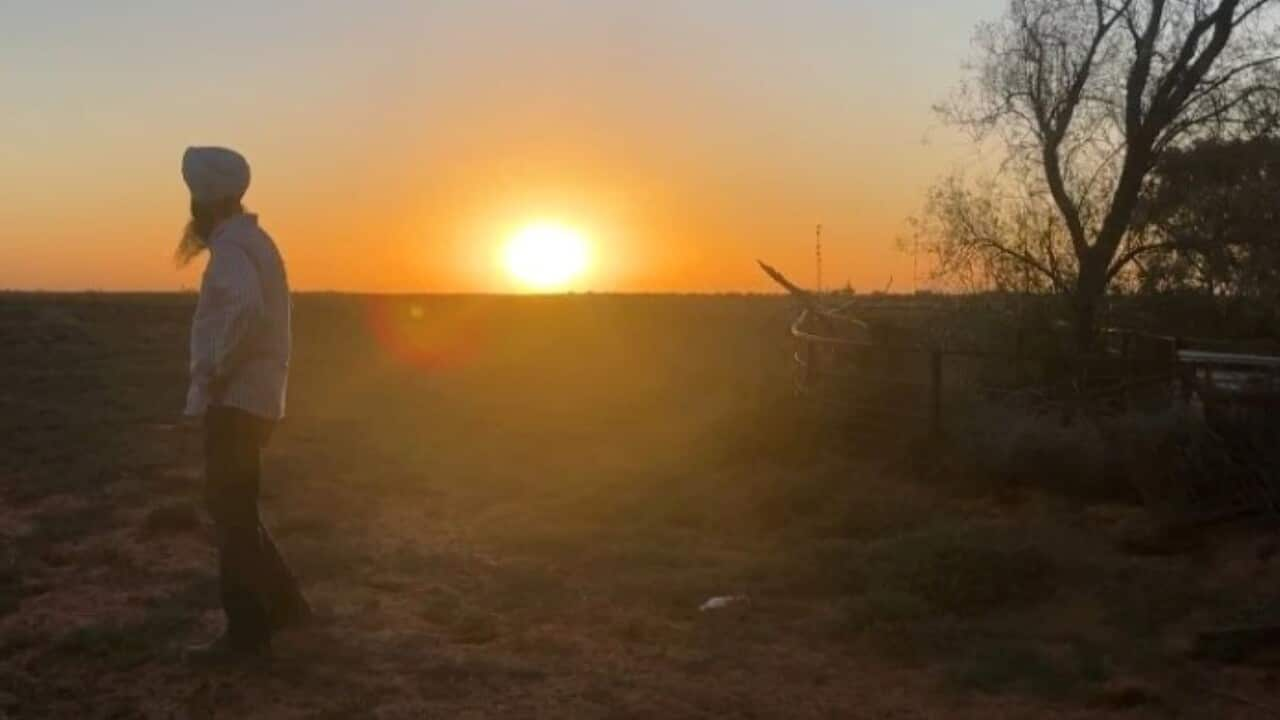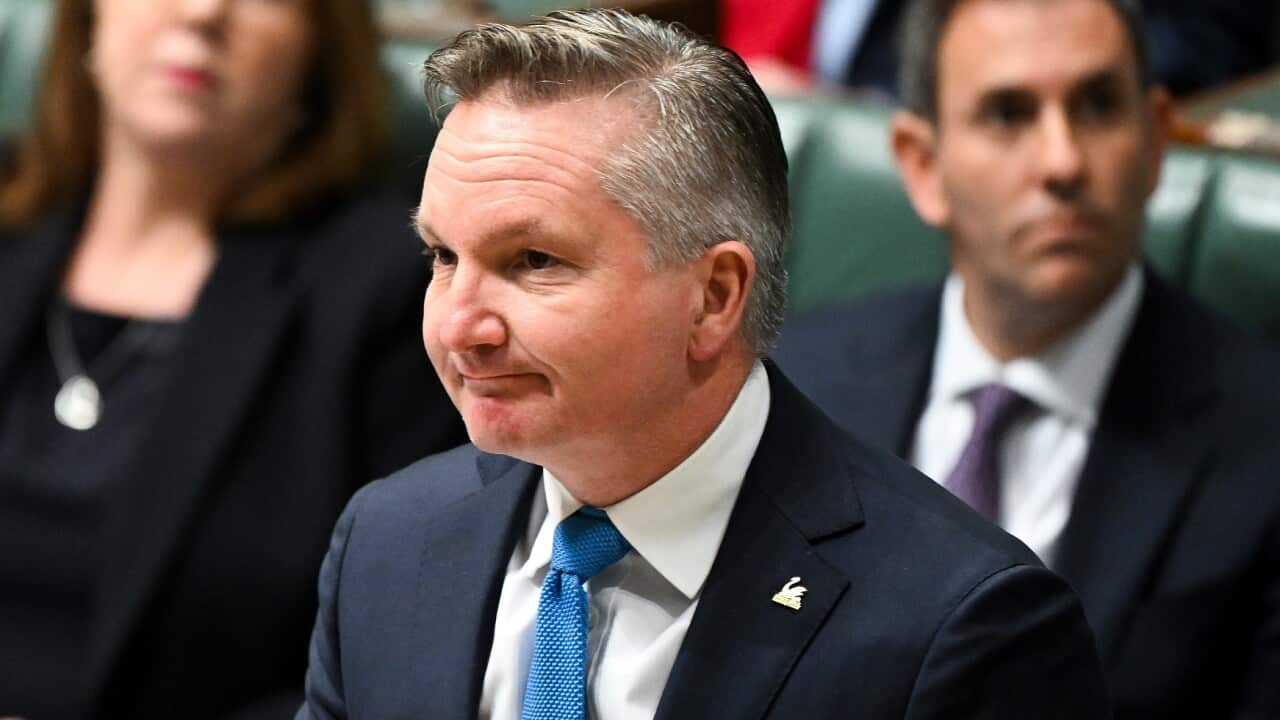Listen to Australian and world news, and follow trending topics with SBS News Podcasts.
TRANSCRIPT:
The historic overhaul of Australia's national environmental laws has been formally tabled in the House of Representatives.
Leader of the house Tony Burke introduced the 1500 page document.
"This package of bills is a once in a generation opportunity to reform our environmental laws. We've been down this path before under governments of both sides, and we cannot afford to wait any longer. This bill is a product of work over many years by countless people, all of whom I know are keen to see this done."
The seven-part bill has arrived five years after the 2020 Samuel Review found the current environmental laws were failing the environment.
The bill is expected to pass through the House of Representatives by the end of next week.
But the government still needs to secure a deal with either the Greens or the Coalition to pass these environment reforms in the Senate.
Environment minister Murray Watts has told the ABC that after 100 meetings with different stakeholders, when it comes to passing these bills it’s ‘now or never.'
"If we ever want to pass these reforms, we've got to get moving with them. We can't let this go around in circles for five more years, because every time we wait and every time we get delayed, we see the environment suffer, and we see really important housing, renewables and other projects get held up in red tape."
The urgency is compounded by the Opposition, Greens, and crossbench teaming up to force the bill into a Senate inquiry that will not hand down its final report until March 2026.
Mr Watts says that at this stage of the debate, both the Coalition and the Greens are trying to extract final concessions from the government.
The Greens are saying it doesn't go far enough to protect the environment, Greens Senator Sarah Hanson-Young arguing it is riddled with concessions.
"From what we have seen, this is weakening environmental protection and doing the bidding of big business, paving the way for new coal and gas to be fast tracked, paving the way for big developers and big business to make it easier and cheaper for them to get environmental approval. Meanwhile, no protection for our native forests and no protection for the climate."
The Coalition is worried the bill doesn't do enough for business.
A core component of the government's reform is the establishment of a National Environmental Protection Agency (NEPA), but Opposition environment spokesperson Angie Bell has voiced concerns.
Ms Bell says the inclusion of emissions reporting in the EPBC Act could open the door to increased legal challenges - but she is most crtical of what she calls the "EPA's sweeping powers."
"The wide ranging powers of the EPA, it'll be a statutory appointment that will not report directly to the minister. The minister won't be able to sack that individual. It'll have to be be the governor general that does that. And so that that is a problem in terms of what that outcome might look like in terms of broad, sweeping powers."
Environmental groups, however, are expressing the opposite concern about the E-P-A.
Groups like the Australian Conversation Foundation are worried that retaining the Minister's power of final approval over the EPA will leave environmental protection vulnerable to the political whims of whoever is currently in power.
Acting CEO of the A-C-F, Paul Sinclair, spoke to SBS.
"One of the things that we would love would be for it to be genuinely independent, where the CEO of the EPA would make approval decisions rather than the minister. That would mean that the minister could be the champion of the environment, rather than having to approve, as he's done recently, one of the largest gas polluting gas projects in the southern hemisphere. So we would like to see those approval decisions at a at arm's length from the minister, so that they can't a future Minister can't be influenced by industry, and we think it's a better decision making process."
One of the other major concerns expressed by environmental groups is around native forest logging.
Murray Watt has told the ABC that the agricultural land clearing exemptions sought by environmental groups hadn't been addressed because some of those issues were not included in the Samuel Review.
"As we've said since my predecessor, Tanya Plibersek, began work on this package, is that we would apply the national environmental standards to regional forestry agreements under which native forestry occurs. That was the recommendation from Graham Samuel. So that's the direction we're intending to go. I am aware that some of the environment groups are also seeking removal of exemptions when it comes to agricultural land clearing. There's not anything in the bill on that front, mainly because my priority has been to focus on delivering those recommendations."
However, Paul Sinclair says the government is ignoring elements of the Samuel Review that are related to native forest logging.
He says the Samuel Review explicitly labelled the Regional Forest Agreements (RFAs) as 'broken', and he argues the federal government must take over their management from the states to secure these protections through enforceable national standards.
Mr Sinclair has told SBS these issues haven't been addressed in the current bill.
"We're deeply concerned that these bills ignore deforestation. Up to 500,000 hectares of Bush is bulldozed every year. It's ignoring the damage being done to our big, beautiful forest down south east Australia. The Samuels review made it very clear that the management of our forests is failing, that it's the management fails to protect threatened species. These bills need to address deforestation and end the logging off our forests."













